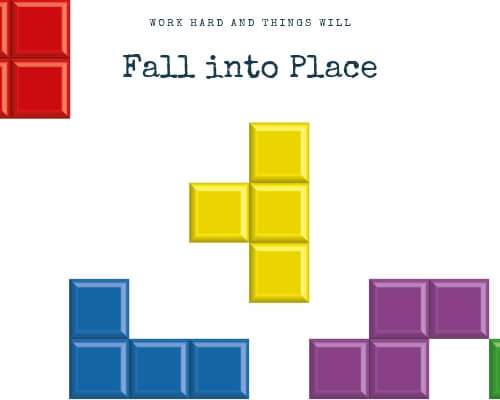
YouTube / iTunes / Spotify / Radio Public / Pocket Casts / Google Podcasts / Breaker / Overcast
Listen to ArtisanEnglish.jp posts & lesson intros here.
Phrase: Fall into place
I don’t know if you remember a TV show named The A-Team from the 1980s.
That show had a character called Hannibal, and during almost every show, there was a line that he said, “I love it when a plan comes together.”
The meaning of the phrase fall into place is very similar to ‘come together.’
When things fall into place it’s a sudden realization; things make sense; it’s the aha moment.
Another understanding of the phrase can be that things work out to your benefit.
Here’s a situation to put it in perspective for you.
Sometimes, language students become frustrated with their progress.
They reach a point where they feel they can no longer move forward and cannot achieve further improvement.
Part of my job as a teacher is to help them get past this point.
I tell them that if they keep working hard, eventually, things will click or fall into place.
There will come a time when, all of a sudden, they will come to a realization.
English suddenly makes sense.
The number of mistakes they make will drop, and they will be more fluent and confident.
The thing is, though, that they have to keep going through difficult times for things to fall into place.
I’m happy to say that this summer, for three of my students (you know who you are, ladies), everything fell into place.
Suddenly, over two to three months, there was a significant improvement in their English skills and confidence.
That’s how things happen.
Throughout my career, I’ve noticed that things fall into place for diligent people who keep working hard.
I believe this is true for everything.
Perhaps you think that it’s just luck.
Well, I say that people make their own luck.
Through diligence and determination, people put themselves in the proper situations so that luck can help things fall into place.
Flesch-Kincaid Readability Test
This post is understandable by someone with at least a 7th-grade education (age 12).
On the Flesch-Kincaid reading-ease test, this post scores 75.
The easier a passage is to read, the higher the score on a scale of 0 – 100.

